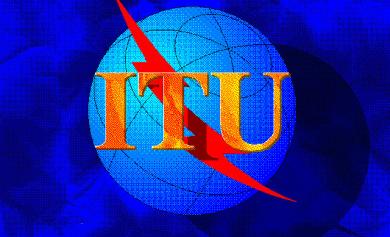
Ahead of the UN Climate Change Conference (COP-17) in Durban, South Africa, participants at the International Telecommunication Union (ITU) Symposium on ICTs and Climate Change in Ghana have renewed calls for global leaders to recognise the power of information and communication technologies (ICTs) to mitigate and adapt to the effects of climate change.
The communiqué issued at the end of the meeting has urged ITU to lead a coalition urging COP-17 delegates to look to the enormous potential of ICT solutions to cut emissions across all sectors. The document also called for the adoption of a ‘closed loop’ approach to manufacturing and recycling which would reduce the need to extract and process raw materials. It also asks for recognition of the value of ICTs in monitoring deforestation, crop patterns and other environmental phenomena.
Specific mention of ICTs in the COP-17 negotiating text along with the adoption of an agreed methodology for measuring the carbon footprint of ICT equipment and its inclusion in national adaptation and mitigation plans would provide an incentive to the ICT industry to invest in developing countries, help reduce the digital divide, and at the same time help fight climate change – a win-win scenario. ITU is already actively developing a methodology that could serve as a reliable and accurate global benchmark for assessing the carbon footprint of a wide range of ICT equipment.
The ITU’s secretary-general, Dr Hamadoun Touré, however, stressed ITU’s commitment to providing the technical know-how to mitigate and adapt to climate change. “It is now clear to most observers that ICTs have a very important role to play here. Recognition of this at the international level will provide countries with a solid argument to roll out climate change strategies with a strong ICT element,” he said.
Speaking at the opening of the Ghana symposium, Malcolm Johnson, director of ITU’s Telecommunication Standardisation Bureau (TSB), said: “Today, a world without ICTs is unthinkable. ICTs are integrated into almost all parts of our society and economy. Yet, while the increasingly widespread use of ICTs has changed people’s lives dramatically and boosted economic growth, the success of technology means it is itself a growing contributor to greenhouse gas emissions. On the other hand, ICTs probably provide the most significant opportunity to reduce greenhouse gas emissions in the major high emissions industries of energy generation, waste disposal, building and transport. This is a message we must carry to COP-17.”
During the event, ITU launched a project on ICTs and climate change in Ghana which would be based on two pillars. The first would look at how ICTs could be used to help Ghana adapt to the effects of climate change, and would be led by the ministry of communications and sponsored by Research in Motion (RIM).
The second, which would be led by Ghana’s Environment Protection Agency (EPA) with sponsorship from Vodafone Ghana, would look at how telecommunications in Ghana could reduce their own greenhouse gas emissions (GHGs). This project would pilot, for the first time, the ITU methodology on environmental assessment for the ICT sector.
The Ghana event was the sixth ITU symposium on ICTs, the environment and climate change, following successful events in Kyoto, London, Quito, Seoul and Cairo, beginning in 2008. It was the first to address the broader issue of sustainable development, identifying a number of possible recommendations from the ICT sector that could be presented to the 2012 United Nations Conference on Sustainable Development. The symposium was opened by John Mahama, vice-president of Ghana.
Meanwhile, ITU’s Global symposium for Regulators will meet in Armenia City, Colombia from September 21 to 23, 2011. The symposium will be preceded by the Global Industry Leaders’ Forum on 20 September that will provide a top level international platform for industry leaders and investors to share their views with regulators and policy makers.?

